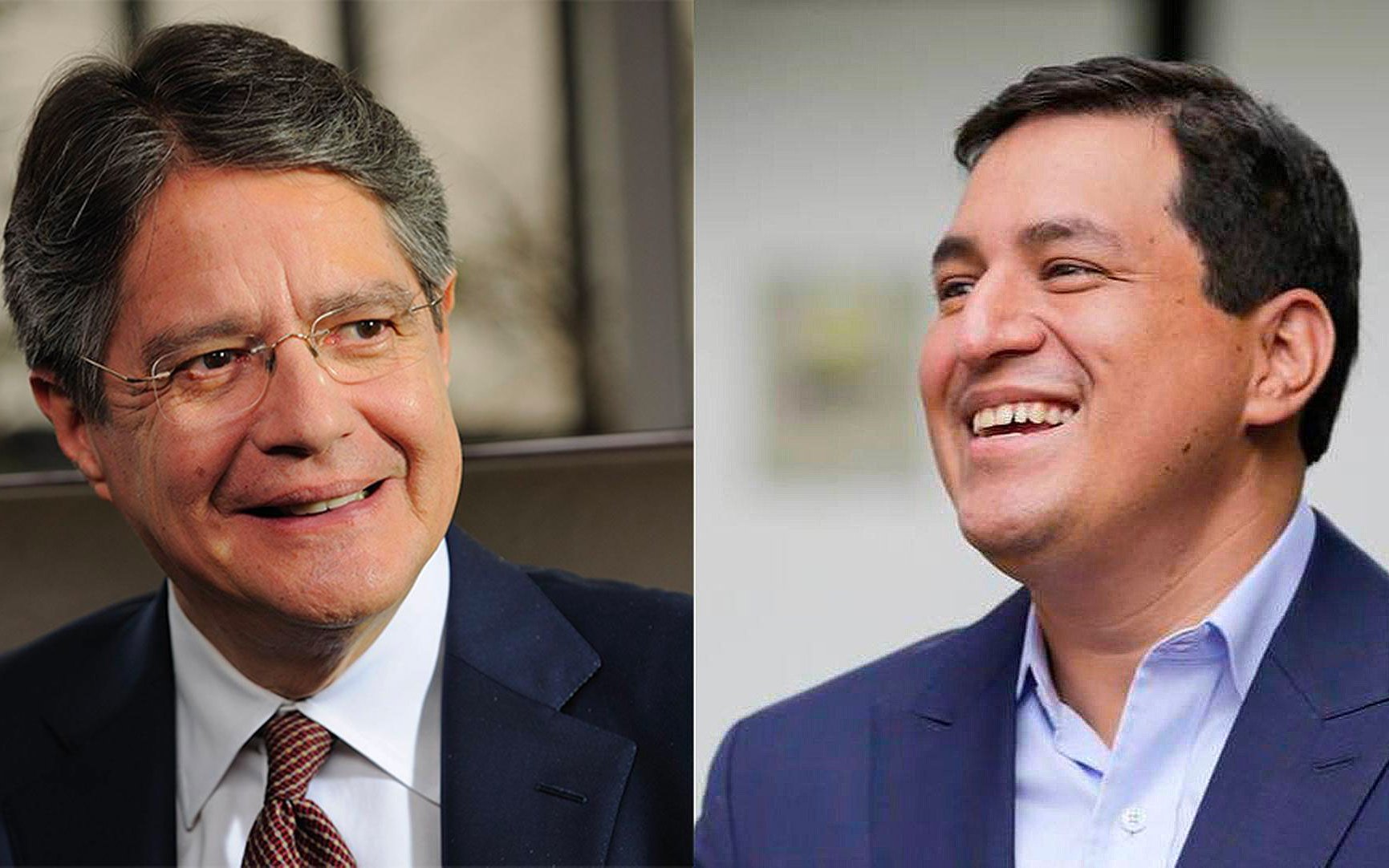Grâce à Edward Snowden, jeune Américain idéaliste indigné par les pratiques de son gouvernement, on en sait chaque jour davantage sur le gigantesque réseau mondial d’espionnage de la National Security Agency (NSA). Certes nul ne se faisait beaucoup d’illusions à ce sujet – et la NSA n’est que l’une des 17 agences de renseignement des Etats-Unis –, mais la révélation par l’hebdomadaire allemand Der Spiegel et par le quotidien britannique The Guardian que les institutions de l’Union européenne (UE) et les gouvernements de plusieurs Etats membres (dont ceux de l’Allemagne et de la France) sont placés sous surveillance, au même titre que des groupes terroristes, a ajouté le scandale au scandale.
A une semaine de l’ouverture prévue des négociations pour un traité de libre-échange transatlantique, voilà un développement dont se seraient bien passés les atlantistes patentés, voire viscéraux, que sont José Manuel Barroso et les autres membres de la Commission européenne, ainsi que la quasi totalité des dirigeants de l’UE. A Bruxelles, à Berlin, à Paris et dans les autres capitales, on ne sait plus où se mettre…
Certes, et c’était bien le moins, on affecte d’être choqué et on demande des « explications » à Washington. Mais qui peut croire une seconde qu’elles conduiront à une remise en cause d’un dispositif qui, avec l’OTAN et les quelque 700 bases militaires étasuniennes dans le monde, constitue le bras armé de l’hégémonie américaine, même si elle est en partie entamée ? On n’ose plus ici parler d’ « impérialisme américain » puisque, semble-t-il, cette expression a été bannie du lexique de la « gauche de gauche » française et européenne, notamment lors du récent Alter Summit d’Athènes…
Dans un sursaut de dignité, dont elles n’ont jamais fait preuve jusqu’ici, on pourrait attendre des autorités de l’UE qu’elles renoncent à négocier un traité avec un « allié » qui les traite en ennemies, en « pays-cibles ». Ne rêvons pas… Au minimum, elles pourraient manifester leur reconnaissance à l’égard de celui qui leur a dévoilé les agissements dont elles sont les victimes, si tant est qu’elles se considèrent vraiment comme telles : le lanceur d’alerte Edward Snowden devenu l’ennemi numéro un de Washington et, à ce titre, traqué par tous les services américains et, s’il est interpellé, promis à la prison à vie.
Il se dit que Snowden se trouve encore dans la zone de transit de l’aéroport de Moscou, en attente de l’obtention du statut de réfugié politique sollicité auprès du gouvernement de l’Equateur. Cette procédure peut prendre plusieurs semaines. D’ores et déjà, des personnalités américaines internationalement connues – parmi lesquelles Oliver Stone, Noam Chomsky, Tom Hayden, Daniel Ellsberg et Danny Glover – ont signé une lettre au président Rafael Correa pour lui demander d’accorder l’asile politique à Edward Snowden.
Aucun gouvernement de l’UE n’ayant spontanément le courage de prendre une telle mesure en faveur de Snowden, ce serait l’honneur des responsables de partis politiques de la préconiser, ce que seul a fait à ce jour Jean-Luc Mélenchon, co-président du Parti de gauche. Qu’en dit Harlem Désir, premier secrétaire du Parti socialiste ? A défaut, ces responsables, pourraient au moins signer la lettre à Rafael Correa dont tout indique que sa main ne tremblera pas…
Par la même occasion, ils pourraient demander au gouvernement suédois de s’engager à ne pas extrader aux Etats-Unis l’emblématique fondateur de Wikileaks, l’Australien Julian Assange, s’il quitte l’ambassade de l’Equateur à Londres, où il est réfugié depuis plus d’un an, pour répondre, à Stockholm, des accusations – relevant du droit commun – dont il fait l’objet.
Mémoire des luttes demande à tous les militants politiques, syndicaux et associatifs, ainsi qu’à tous les créateurs, de se solidariser avec Edward Snowden en envoyant leur signature : http://org.salsalabs.com/o/1439/p/dia/action3/common/public/?action_KEY=13829
LETTRE AU PRÉSIDENT RAFAEL CORREA
Dear President Correa,We write to urge you to grant political asylum to whistle-blower Edward Snowden.
Snowden’s disclosures have already done much to unveil the alarming scale of U.S. government spying on its own citizens and on people around the world. They have revealed severe overreach by the U.S.’ National Security Agency (NSA), which seeks to gather an overwhelming and invasive amount of information on people within the United States. Snowden has also revealed that the constant NSA surveillance also applies to millions of people outside the U.S., whose phone calls, emails and other communications are also indiscriminately targeted.
These are severe abuses of the basic constitutional rights of U.S. citizens and the rights of people in other nations. Yet rather than focusing on the danger to citizens’ freedom and privacy exposed by these revelations, and what reforms are necessary to protect citizens’ rights, the Obama administration, the U.S. Congress and much of the media are again focusing their ire on the messenger – the brave whistle-blower who, at great personal risk, decided to step forward and inform the U.S. public about what is being done in their name and what is being done to them. Sadly, a great deal of the media and other institutions that should play the role of watchdog have largely abdicated their responsibility.
We have seen this drama play out several times before under the Obama administration. The administration has charged more than twice as many whistle-blowers under the Espionage Act than all previous presidents combined. These have included Thomas Drake who also exposed wrongdoing at the NSA, and most notably Private Bradley Manning, who stands accused of providing Wikileaks with information that revealed U.S. war crimes, U.S. meddling in other countries’ affairs, and other grave and troubling misdeeds. Manning was held for three years before his trial under conditions that a formal U.N. investigation found to be “cruel, inhuman and degrading.”
Many of us petitioned last year for you to grant political asylum to Wikileaks founder Julian Assange. Assange, who as you know well, has been targeted by the U.S. government for publishing evidence of U.S. war crimes – most notably the “Collateral Murder” video of a U.S. helicopter attack on civilians in Iraq – and other information embarrassing to the U.S. government. The Obama administration’s consideration of Espionage Act charges against Assange and Wikileaks, via a grand jury, and bellicose rhetoric by top administration officials and members of Congress, amount to a chilling assault on freedom of the press. We were glad to see you act to support this vital freedom by recognizing Assange’s political persecution and granting him asylum and refuge at the Ecuadorean embassy in London.
As could have been the case with Assange, Manning’s treatment since his arrest shows that Snowden could be subjected to cruel and unusual punishment if he were taken into U.S. custody. There is also a grave danger that Snowden would have difficulty in receiving a fair trial in the U.S. – a point he reportedly has made in his petition for asylum. Manning’s case also shows that Snowden’s constitutional right to a “speedy” trial might also not be secure. These are all serious examples of political persecution against Manning that may awaitSnowden if he becomes a U.S. prisoner.
It is no doubt your courageous decision to grant Assange asylum that has encouraged Edward Snowden to also seek asylum in Ecuador. Your choice in Assange’s case was not without consequences ; the U.S. and U.K. governments reacted angrily, with British police keeping Assange confined to the embassy. Since Assange is being targeted by the U.S. government, there has and no doubt will be more political repercussions. You knew this and yet you acted in the name of justice, saying “Latin America is free and sovereign and… we’ll not put up with meddling, colonialism of any kind, at least in this country, small, but with a big heart."
Charging someone with espionage, who clearly did not commit espionage, is strong prima facie evidence of political persecution. The unprecedented quantity of whistle-blowers that have been charged under the Espionage Act by the Obama administration suggests that it is applying this law in a completely arbitrary fashion. In Snowden’s case what he has revealed are actions by the NSA that violate the U.S. Constitution’s Fourth Amendment protections against “unreasonable searches and seizures.” There is no evidence whatsoever that his revelations have in any way threatened U.S. national security or were ever intended to do so. Yet rather than pursue reforms that would protect the rights of people in the U.S. and around the world, the Obama administration again seeks to silence those who have brought these abuses to light. These are actions of political repression, and you would be right to grant Snowden political asylum.
Thank you for your consideration of our request.
- Oliver Stone, Film Director
- Noam Chomsky, Author
- Tom Hayden, Author, Peace Activist
- Daniel Ellsberg, Vietnam War whistleblower
- Danny Glover, Film Director
- Amber Heard, Actress
- Shia LaBeouf, Actor
- John Cusack, Actor
- Roseanne Barr, Comedian
- Naomi Klein, Author and Activist
- Boots Riley, Musician and Community Activist
- Andy de la Tour, actor, screenwriter
- Susan Wooldridge, Actor and writer
- Emma Thompson, actress, comedian, screenwriter and author
- Jean Luc Mélenchon, Member, European Parliament ; co-president, Left Party of France
- Bernard Cassen, professor emeritus, University of Paris ; Secretary General, Mémoire des luttes
- Juan Cole, Professor of Middle East History, University of Michigan
- Cenk Uygur, co-founder, The Young Turks
- Thomas Drake, former NSA Senior Executive, whistleblower
- Coleen Rowley, retired FBI agent & former Minneapolis Division Legal Counsel, one of three “whistleblowers” named Time Magazine’s “Persons of the Year” in 2002
- Ambassador Joe Wilson, Iraq War whistleblower
- Jacob Appelbaum, Developer, The Tor Project
- Medea Benjamin, Cofounder, CODEPINK
- Jodie Evans, Cofounder, CODEPINK
- Ann Wright, US Army Colonel (Ret) and former US diplomat
- Ray McGovern, Former U.S. Army officer and longtime senior CIA analyst (ret.)
- Walter Riley, Attorney ; Civil Rights Activist ; Chair Haiti Emergency Relief Fund ; Chair, Meiklejohn Civil Liberties Institute
- Mark Weisbrot, Co-director, Center for Economic and Policy Research
- Bill Fletcher, Jr., writer/activist
- Kevin Gosztola, Journalist, Firedoglake.com
- John Pilger, Journalist
- Ignacio Ramonet, Journalist and author
- Fernando Morais, writer
- Kent Spriggs, Guantanamo habeas counsel
- Kevin Martin, Executive Director, Peace Action
- Kathy Kelly, Co-coordinator, Voices for Creative Nonviolence
- Mark C. Johnson, Executive Director, Fellowship of Reconciliation
- Rabbi Michael Lerner, Editor, Tikkun and Chair, The Network of Spiritual Progressives
- Norman Solomon, Cofounder, RootsAction.org
- Jeff Cohen, Founder of FAIR
- Michael Beer, Executive Director, Nonviolence International
- Maya Schenwar, Executive Director, Truthout
- Michael Albert, co-editor, ZNet, Z Magazine
- Robert Naiman, Policy Director, Just Foreign Policy
- Sam Husseini, Director, Washington office of the Institute for Public Accuracy
- Miguel Tinker Salas, Professor of History, Pomona College
- David Blacker, Prof. of Philosophy of Education & Legal Studies, U. Delaware ; Editor, Education Review
- Marc Becker, Professor of History, Truman State University
- Adrienne Pine, Assistant Professor of Anthropology, American University
- C. G. Estabrook, Visiting Professor (retired), University of Illinois
- Carolyn Eisenberg, Professor of US Foreign Policy, Hofstra University
- Peter Kuznick, Professor of History, American University ; co-author with Oliver Stone of The Untold History of the United States
- Greg Grandin , Professor of History, New York University
- Betsy Hartmann, Professor, Development Studies, Hampshire College
- Van Gosse, Associate Chair, Department of History, Franklin & Marshall College
- Falguni A. Sheth, Associate Professor of Philosophy and Political Theory, Hampshire College
- Bob Buzzanco, Professor of History, University of Houston
- Vijay Prashad, Professor of History and International Studies, Trinity College
- Staughton Lynd, Historian and peace activist
- Marilyn Young, Historian, New York University
- William Robinson, Professor of Sociology, University of California, Santa Barbara
- Sinclair Thomson, Associate Professor of History, New York University
- T.M. Scruggs, Professor Emeritus, Univ. of Iowa ; Executive Producer, TheRealNews.com
 Lecture .
Lecture .

